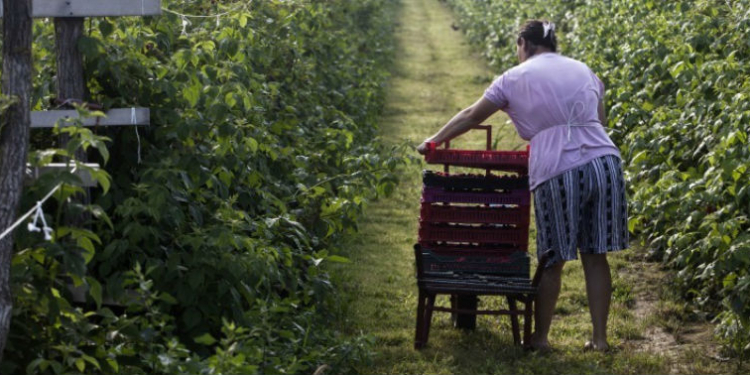The FINANCIAL — Promoting Serbian agricultural exports, modernizing the country’s water management systems and developing food quality labelling and geographical indication schemes were at the heart of a three-way meeting today in Serbia.
At the meeting, Serbia’s Ministry of Agriculture, Forestry and Water Management, the Food and Agriculture Organization of the United Nations (FAO) and the European Bank for Reconstruction and Development (EBRD) agreed to sign a Memorandum of Understanding (MoU) pointing to the continued commitment of the three partners to strengthening Serbia’s agrifood sector, according to the EBRD.
Serbia’s Minister of Agriculture, Branislav Nedimovic, commended the fruitful partnership with FAO and the EBRD in recent years, noting that the new agreement recognizes what he called “mutual goodwill and interest in continuing to leverage our respective strengths – to build a more efficient, sustainable, inclusive and competitive agrifood system in Serbia.”
Promoting Serbian exports
Serbia’s grain and oilseed sector is vital to the country’s economy, employing over 180,000 people and accounting for a considerable share of export income. In fact, the country has become one of the largest exporters of maize in Europe.
But despite favourable grain and oilseed market trends, Serbia has yet to fully tap into global grain markets.
Under the new agreement, FAO and the EBRD will continue to support efforts to accelerate Serbia’s export growth. In part, this will involve strengthening the capacity of the Serbian Grain Association to analyse markets and resolve production and trade bottlenecks – from infrastructure to logistics.
“There is great potential for Serbian producers and traders to access new markets, including those in the Near East, Middle East and Asia,” said Miljan Zdrale, the EBRD’s Regional Head of Agribusiness for central and south-eastern Europe. “FAO and the EBRD will continue to provide technical assistance for compliance with trade requirements and promote public-private dialogue among the country’s grain industry players, as well as regular information sharing and participation in international trade events.”
Linking quality to origin
FAO and the EBRD are also looking to expand their export development activities to other agricultural products, such as the country’s famous Arilje raspberries. Thanks to an FAO-EBRD project, the first 1 000 tonnes of Arilje raspberries achieved geographical indication (GI) certification this year.
The Oblačinka from Oblačina – a sour cherry from southern Serbia – has already received GI status. This entitles the cherries to be marketed under a public label that recognizes the link between a high-quality product and its place of origin.
Serbian products featuring the GI label were showcased during today’s meeting.
FAO, the EBRD and Serbian authorities have supported the creation of associations tasked with protecting and marketing the certified GIs, ensuring internal controls and traceability, and strengthening producers’ links to suppliers and retailers.
“A successful GI can open up new market opportunities, both domestically and abroad, raise rural incomes and ignite the local economy,” said FAO senior economist Emmanuel Hidier.
He added that under the MoU, FAO and the EBRD will build on this work as they assist Serbia in aligning its food quality policy with the European Union’s Acquis – the common rights and obligations that are binding for all EU members.
Strengthening the country’s water management systems
The two organizations have also agreed to work with the Serbian Government to draw up an investment project on irrigation and water management. Serbia’s irrigation systems require modernization if the country is to exploit its full agricultural potential. Currently, less than 100,000 hectares – or 4 percent of the country’s arable land – is irrigated.
In recent years, Serbia has been hit hard by both drought and floods. With climate change challenges ahead, investment in water management is vital.
































Discussion about this post